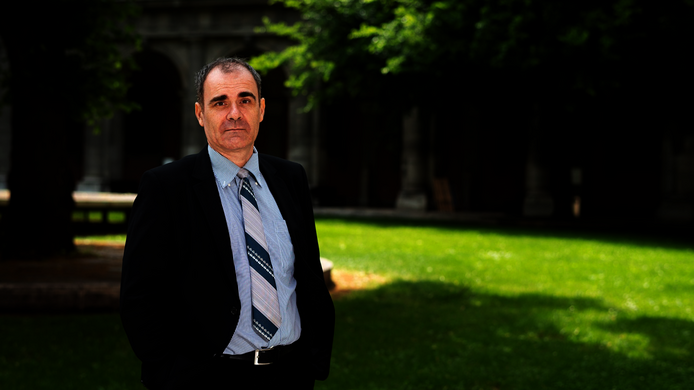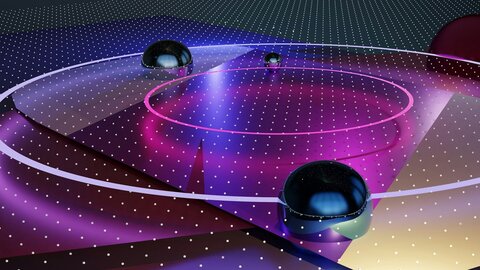Understanding the Earth’s system of waves and currents

FWF: What answers do you hope your research will be able to provide in the coming years?
Adrian Constantin: I am going to use mathematical methods to study wave motions and currents in the oceans and in the atmosphere. These large-scale movements in the water and air are the basis for many weather- and climate-related phenomena that we need to understand better. I am particularly interested in the interactions between waves – i.e. oscillations that we find not only in water but also in the atmosphere – and currents over large, geophysical dimensions. This field still raises many questions as well as aspects that have been described only in a very simplified form. One case in point is the spherical geometry of the Earth – i.e. the fact that its surface is curved. In most studies of oceanic and atmospheric currents and waves, this fact is not taken into account, and the Earth is treated as if it were flat. Given that we are dealing with phenomena that may extend over thousands of kilometres, such a view is too inaccurate.
And then there is the Coriolis force, which is a result of the rotation of the Earth and changes the effects of gravity. This is not a minor disturbance that causes deviations, but a major characteristic of the currents and waves that can be observed in the oceans and in the atmosphere. In addition to the general equations applied to such physical phenomena, I would like to be able to account for individual circumstances – such as whether an air current is over land or sea. This is designed to refine the analysis in this field using various approaches from mathematics.
FWF: What will the first steps be?
Constantin: I plan to invite several scientists who are interested in my area of research to Vienna to engage in some kind of collaboration. I hope that the development of the corona epidemic will permit this now. There are also a few young people who would like to get involved in this research. I hope to be able to make plans for the next few years as of the summer holidays.
Personal details
Adrian Constantin is a Professor at the Department of Mathematics, University of Vienna. The fields of research of the Romanian-born scientist include non-linear, partial differential equations in the field of fluid motions and subsequent mathematical descriptions of natural phenomena. Noted for the particularly high number of citations his work in the field of mathematics has obtained, Constantin has received numerous awards and honours, including an Advanced Grant from the European Research Council (ERC) in 2010.
FWF: What does the Wittgenstein Award mean for your research activities?
Constantin: The freedom that this award provides for my future research is incredibly important. I am a mathematician, but I am interested in the phenomena of physics and would therefore like to exchange ideas with relevant experts – not only from the field of physics, but also from engineering and technology. I want to work with people who can help me understand the data from their fields. It takes time and flexibility to establish contacts, invite experienced colleagues from other fields and involve them in the research. Now I know that I will have the necessary elbowroom to deal with new topics. I can engage young people in my work, and they, in turn, will benefit from intensive international exchanges. I hope that I will be able to use the many opportunities offered by the Wittgenstein Award to make a relevant contribution.
FWF: What is the source of motivation for your research?
Constantin: There are phenomena – in meteorology, for instance – that are simply amazing. To give you an example: we regularly find clouds on the coast of Australia that are hundreds of kilometres long, shaped like rollers and moving at an extraordinary speed – they are called Morning Glory clouds. I am inspired by the idea that I could gain insights into such phenomena using mathematical methods. Natural phenomena hold great fascination for me and if Galileo Galilei is to be believed, mathematics is the language in which nature is written. It never ceases to amaze me how much this is actually the case. I would like to find out whether I can gain new insights with new approaches in this field.
About the project
Numerous large-scale movements occur in the atmosphere and oceans that can be described as currents or waves. Previous modelling is greatly simplified and fails to take account of many aspects of geophysical relevance. Adrian Constantin wants to bridge these gaps and present detailed mathematical descriptions of the physical processes.
Wittgenstein Award
The Wittgenstein Award, Austria's most generously endowed science award, is bestowed on outstanding researchers of any discipline. Endowed with EUR 1.5 million, the award supports the awardees in their research, guaranteeing them utmost freedom and flexibility and enabling them to develop their research activities at the highest international level.





